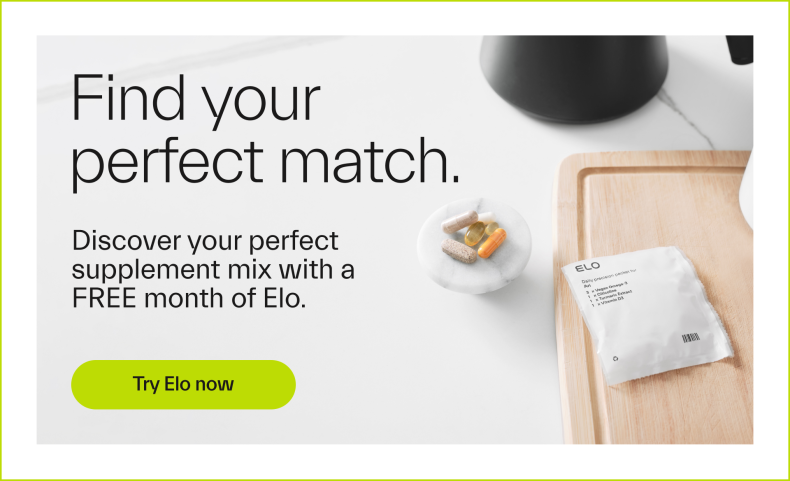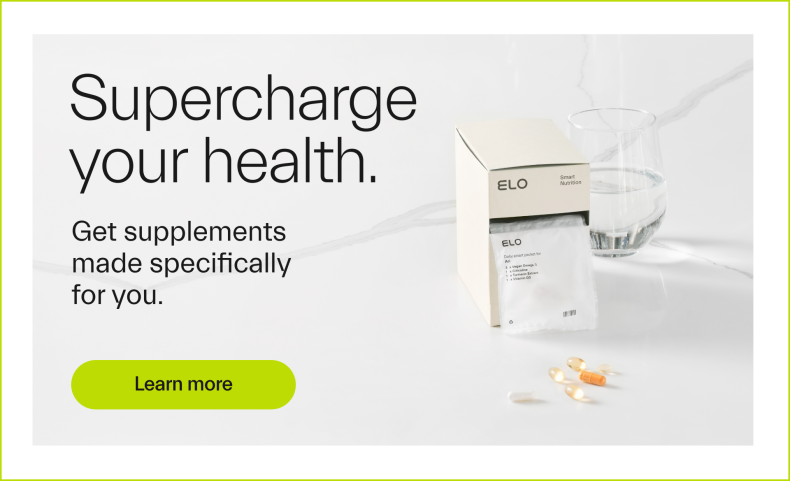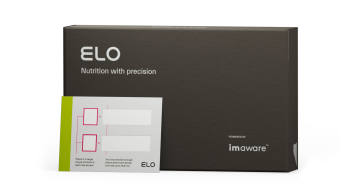Gummies vs. capsules vs. powders vs. tablets: What form of supplementation is best?
From capsules to powders and gummies to tablets, there are a variety of supplementation forms available. But how do you know which one is right for you? Here is a breakdown of the most common supplementation forms to best fit your needs.

If you’re looking for ways to reduce your risk of certain diseases, combat a vitamin deficiency, or enhance your overall health and wellbeing, then certain supplements may be the answer for you. Even though you can get many essential nutrients in a balanced diet, supplements are a good health insurance policy because it can be difficult to get everything you need with food alone.
However, there are many different forms of supplements, each with various pros and cons to consider, and it may seem overwhelming to choose the right form for you. Whether it’s gummies, capsules, powders, or tablets, there are things to consider to find one that will fit your specific needs and lifestyle preferences.
Before we further examine the differences between each supplement form, let’s first discuss the importance of supplementation and why you should consider it.
Importance of supplementation
While you can get many nutrients from a healthful, well-balanced diet, you may not get all of them on a regular basis. Evidence shows that only 28% of adults eat their recommended five servings of fruit and vegetables each day, leaving many people with nutrient gaps [ 2 3 1 4
With so many people falling short on fruit and vegetable consumption and other essential nutrients, it stands to reason that supplementation could be a reasonable solution. While supplements aren’t a replacement for food, they are a good insurance policy to have in your diet, as they fill in the gaps and make up for any nutritional shortfalls.
Research has shown that supplementation may also provide significant benefits for specific groups and indications. For instance, alpha lipoic acid can be beneficial for cholesterol reduction, and vitamin C may reduce the duration of cold symptoms [ 5 6
When choosing supplements, be sure to select ones that are third-party tested. Learn more about why that’s important with
this article
.

What are the different types of supplements?
Dietary supplements come in a variety of forms, so it may seem overwhelming to choose which one is best for you. Here’s a breakdown of the different types of supplements, as well as some pros and cons associated with them.

Tablets
Tablets are one of the most common forms of supplements. They are inexpensive to produce, safe to consume, and effective at delivering nutrients. They also offer a variety of shapes and sizes (as well as chewable forms) to help with consumption.
Tablets are made by compressing powdered ingredients together to create a solid pill that breaks down within the digestive tract [ 7 8
Here are some pros and cons of taking tablets:
Pros
Cost effective. In general, tablets are cheaper to manufacture, which makes them a more affordable option for consumers.
Varied size. Tablets come in a variety of shapes and sizes, making it easier for the consumer to choose which one will suit their needs.
Ease of use. For those who have trouble swallowing tablets, they can rely on chewable or orally-disintegrating tablet forms.
Dose splitting. Scored tablets can be split apart for various reasons, such as ease of swallowing.
Shelf-stable. Tablets tend to be more shelf-stable and have a longer lifespan.
Cons
Slower acting. Tablets take around 30 minutes to dissolve [
13
].Uneven disintegration. Tablets may break down inconsistently, which can lead to a lower absorption rate.
Less palatable. Some people may find that the tablet’s outer coating causes a bad aftertaste.
Gummy vitamins
Whether in the kids section or down an aisle at Whole Foods, we’ve all seen a variety of gummies for sale. These chewable vitamins are heralded as a tasty way to get your nutrients in, coming in a multitude of shapes, colors, and flavors meant to appeal to children and adults alike who may not enjoy swallowing pills. However, despite the colorful marketing schemes, the question remains: are gummy vitamins effective?
The answer depends on a few factors. Here are some pros and cons to consider before taking gummies.
Pros
Ease of use. Thanks to the variety of flavors and colors, gummy vitamins are easy to take, which can lead to better supplement adherence [
9
].Good for certain people. Gummy vitamins work for picky eaters, as well as those who have absorption issues or difficulty swallowing pills.
Cons
Extra additives. Studies have found that gummies may contain sugar alcohols, food coloring, or added sugars, all of which can have negative side effects [
10
,11
].Incorrect nutrient content. Gummy vitamins may have a lower nutrient content than advertised, since manufacturers have to reduce the amount of nutrients present to add filler components and maintain a gummy texture.
Easy to overeat. Gummies have a variety of flavor options and can be easy to overeat, which may lead to some vitamin or mineral toxicities.

Capsules
Similar to tablets, capsules are another common form of supplementation that many people find appealing. However, this differs from tablets in the fact that the medication (or nutrients) are encapsulated in an outer shell. This is broken down in the digestive tract, which is then absorbed into the bloodstream to be distributed and metabolized.
Here are some pros and cons of taking capsules.
Pros
Fast acting. Capsules tend to be absorbed more quickly and act faster once disintegrated [
14
].Tamper-resistant. Unlike tablets, capsules are not as easy to break apart, so they should be taken as intended.
Cons
Less durable. Capsules may react to environmental conditions; as such, they tend to be less durable and expire faster than tablets.
May contain animal products. If you are a vegetarian or vegan, be sure to read the ingredient label, as capsules may contain gelatin sourced from animal products [
12
].

Powders
If you have trouble swallowing tablets or capsules, then taking a powder supplement form may be suitable for you. Powders usually consist of a single ingredient (or a combination of ingredients) and are ideal for getting a large amount of macronutrients–like protein–in at once. Here are some pros and cons associated with powders:
Pros
User-friendly. Powders are a good option for people who don’t like swallowing tablets or capsules.
Versatile. Whether it’s water, coffee, or smoothies, you can easily incorporate powders into your everyday foods and drinks.
Cons
Inconvenient for travel. Powders usually come in a large container, so unless you pre-measure, they can be inconvenient to carry.
Inconsistent measurements. Each scoop may contain a different amount of powder based on a variety of user-error factors (such as how tightly the powder is packed, if it was scored off at the top, or if the scoop was wet or not).
Which form is best?
When considering which form is best, consider the one that works best for you and fits your body, lifestyle and nutritional needs. If you have a problem swallowing pills, then a powder or gummy may work better for you; however, if you’re always on the go, then a tablet may work better for convenience’s sake.
Summary
Supplements are a good way to help reduce your risk of certain diseases, combat a vitamin deficiency, and/or enhance your overall health and wellbeing. Between gummies, capsules, powders, and tablets, there are many different forms of supplements available, all of which have various pros and cons. While it may seem overwhelming to pick the right one for you, you should make your decision based on how each supplement would best fit your body, lifestyle, and nutritional needs.
Disclaimer: The text, images, videos, and other media on this page are provided for informational purposes only and are not intended to treat, diagnose or replace personalized medical care.
Key takeaways
While supplements aren’t a replacement for food, they are a good insurance policy to have in your diet, as they fill in the gaps and make up for any nutritional shortfalls.
Capsules, powders, gummy vitamins, and tablets are common supplement forms, and each has their pros and cons.
The supplement form that works best for you is the one that fits your body, lifestyle, and nutritional needs.
When choosing supplements, be sure to go for ones that are third-party tested, as this ensures a product meets quality and safety standards.
References
Centers for Disease Control and Prevention. (2021, February 19). Products - data briefs - number 399 - February 2021. Centers for Disease Control and Prevention. Retrieved January 28, 2022, from
https://www.cdc.gov/nchs/products/databriefs/db399.htm
Centers for Disease Control and Prevention. (2011). Strategies to Prevent Obesity and Other Chronic Diseases: The CDC Guide to Strategies to Increase the Consumption of Fruits and Vegetables. Atlanta: U.S. Department of Health and Human Services.
https://www.cdc.gov/obesity/downloads/fandv_2011_web_tag508.pdf
Lalji, C., Pakrashi, D., & Smyth, R. (2018). Can eating five fruit and veg a day really keep the doctor away? Economic Modelling, 70, 320–330.
https://doi.org/10.1016/j.econmod.2017.07.024
Wallace, T. C., McBurney, M., & Fulgoni, V. L., 3rd (2014). Multivitamin/mineral supplement contribution to micronutrient intakes in the United States, 2007-2010. Journal of the American College of Nutrition, 33(2), 94–102.
https://doi.org/10.1080/07315724.2013.846806
Baziar, N., Nasli-Esfahani, E., Djafarian, K., Qorbani, M., Hedayati, M., Mishani, M. A., Faghfoori, Z., Ahmaripour, N., & Hosseini, S. (2020). The beneficial effects of Alpha Lipoic acid supplementation On Lp-pla2 mass and its distribution between HDL and apob-containing Lipoproteins in type 2 Diabetic patients: A randomized, double-blind, placebo-controlled trial. Oxidative Medicine and Cellular Longevity, 2020, 1–13.
https://doi.org/10.1155/2020/5850865
Hemilä, H., & Chalker, E. (2013). Vitamin C for preventing and treating the common cold. The Cochrane database of systematic reviews, 2013(1), CD000980.
https://doi.org/10.1002/14651858.CD000980.pub4
Capsule. Capsule - an overview | ScienceDirect Topics. (n.d.). Retrieved January 28, 2022, from
https://www.sciencedirect.com/topics/pharmacology-toxicology-and-pharmaceutical-science/capsule
Intestinal drug absorption. Intestinal Drug Absorption - an overview | ScienceDirect Topics. (n.d.). Retrieved January 28, 2022, from
https://www.sciencedirect.com/topics/pharmacology-toxicology-and-pharmaceutical-science/intestinal-drug-absorption
Ethan, D., Basch, C. H., Samuel, L., Quinn, C., & Dunne, S. (2015). An examination of product packaging marketing strategies used to promote pediatric multivitamins. Journal of community health, 40(3), 564–568.
https://doi.org/10.1007/s10900-014-9972-1
Storey, D., Lee, A., Bornet, F., & Brouns, F. (2007). Gastrointestinal tolerance of erythritol and xylitol ingested in a liquid. European journal of clinical nutrition, 61(3), 349–354.
https://doi.org/10.1038/sj.ejcn.1602532
Nigg, J. T., Lewis, K., Edinger, T., & Falk, M. (2012). Meta-analysis of attention-deficit/hyperactivity disorder or attention-deficit/hyperactivity disorder symptoms, restriction diet, and synthetic food color additives. Journal of the American Academy of Child and Adolescent Psychiatry, 51(1), 86–97.e8.
https://doi.org/10.1016/j.jaac.2011.10.015
Prakash, A., Soni, H., Mishra, A., & Sarma, P. (2017). Are your capsules vegetarian or nonvegetarian: An ethical and scientific justification. Indian journal of pharmacology, 49(5), 401–404.
https://doi.org/10.4103/ijp.IJP_409_17
Savjani, K. T., Gajjar, A. K., & Savjani, J. K. (2012). Drug solubility: importance and enhancement techniques. ISRN pharmaceutics, 2012, 195727.
https://doi.org/10.5402/2012/195727
Le, J. (2022, January 24). Drug absorption - drugs. MSD Manual Consumer Version. Retrieved February 7, 2022, from
https://www.msdmanuals.com/home/drugs/administration-and-kinetics-of-drugs/drug-absorption







